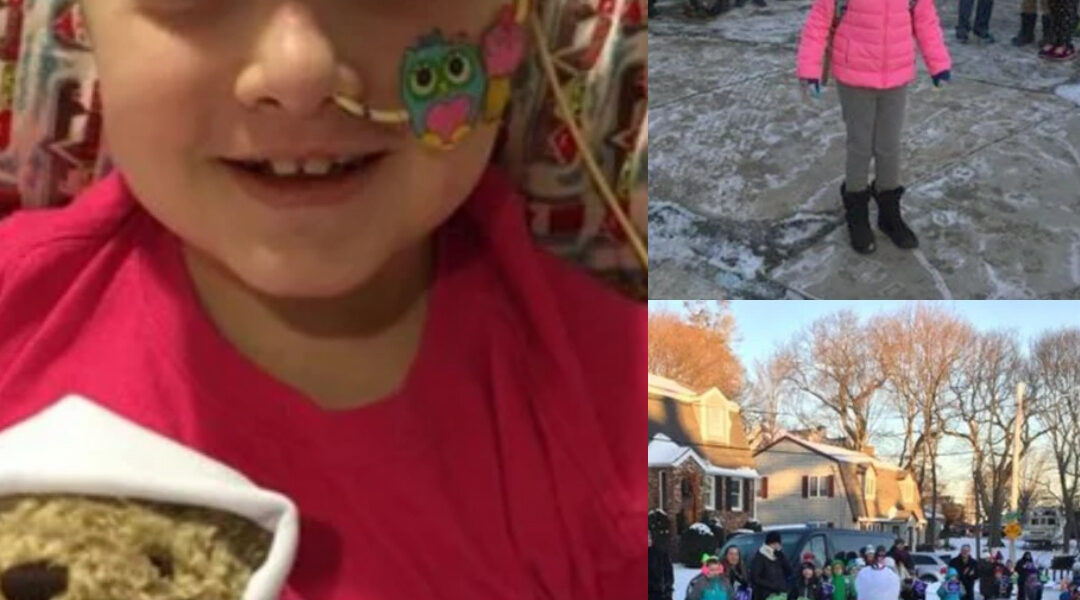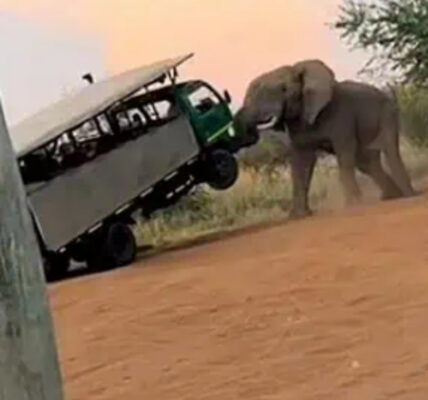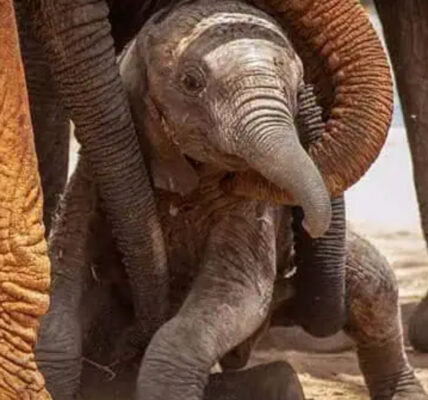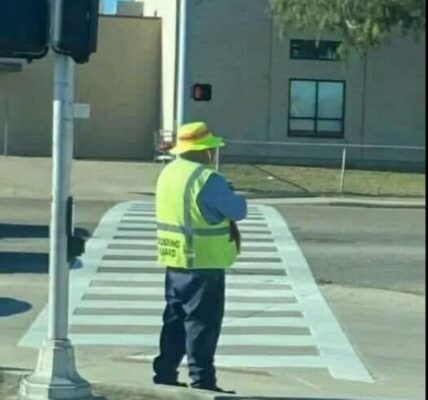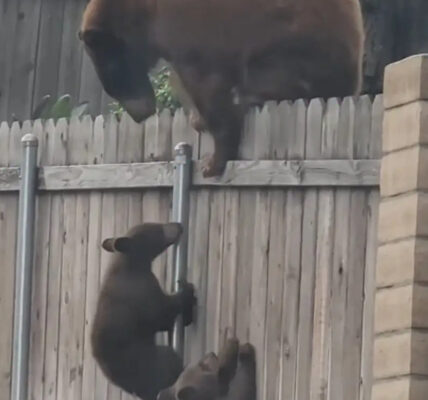On a cold January morning, with temperatures hovering just above freezing, hundreds of people gathered outside Merrymount Elementary School in Quincy, Massachusetts.

Parents, teachers, classmates, and even local police officers lined the front walkway, holding colorful signs and balloons. Their breath rose in white clouds as they waited for a small third grader named Bridget Kelley—a little girl who had been away from school for fifteen long months.
When Bridget finally appeared, her pink winter coat zipped up to her chin, the crowd erupted in cheers.
She blinked in surprise, then smiled—the kind of wide, radiant smile that can only come from a heart that’s been through pain and still finds joy.
It had been 15 months since Bridget had last walked through those school doors. Fifteen months since the playground laughter and classroom chatter had been replaced by the sterile hum of hospital machines. Diagnosed with acute lymphoblastic leukemia in September 2016, when she was only in second grade, Bridget’s life had been turned upside down.
She endured 88 days of chemotherapy, surgeries, and countless hospital visits at Boston Children’s Hospital. But when the treatments failed to bring her remission, her doctors delivered the news every parent dreads: she would need a stem cell transplant.
The donor came from within her own family—her 3-year-old sister.
It was a surgery that offered hope, but also required isolation. After the transplant, Bridget’s immune system was fragile. She had to live in near-seclusion—her own bedroom, a special diet, and minimal contact with the outside world.
For over a year, she watched from her window as life continued without her. No school plays, no birthday parties, no soccer practice. Just the steady rhythm of medicine, rest, and recovery.
But her family—and her community—never let her fight alone.
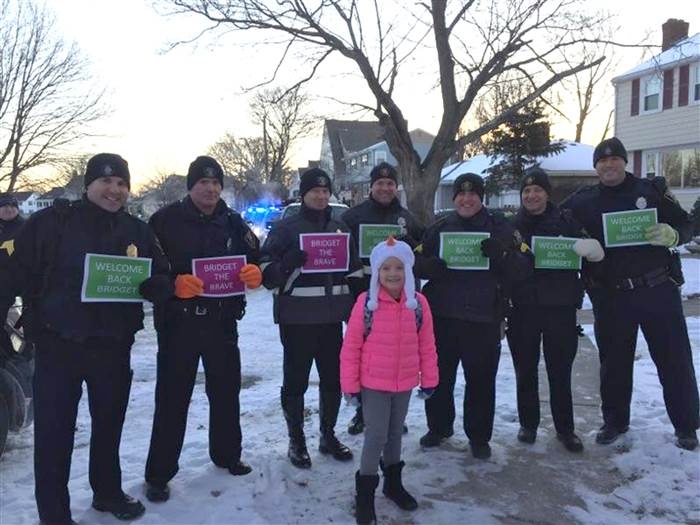
Neighbors dropped off meals. Local families raised money to help cover medical costs. Teachers sent home cards, art projects, and video messages. Her classmates wrote letters and drew pictures that lined her bedroom walls.
Tutors visited the hospital to help her keep up with her studies. Bit by bit, even from her hospital bed, Bridget kept learning, kept smiling, kept fighting.
And on January 2nd, the fight finally brought her back home—to school.
As she walked toward the front gate that morning, the sight took her breath away. The entire school seemed to be there. Children waved handmade signs that read “Welcome Home, Bridget!” and “We Missed You!” Parents clapped. Teachers cried.
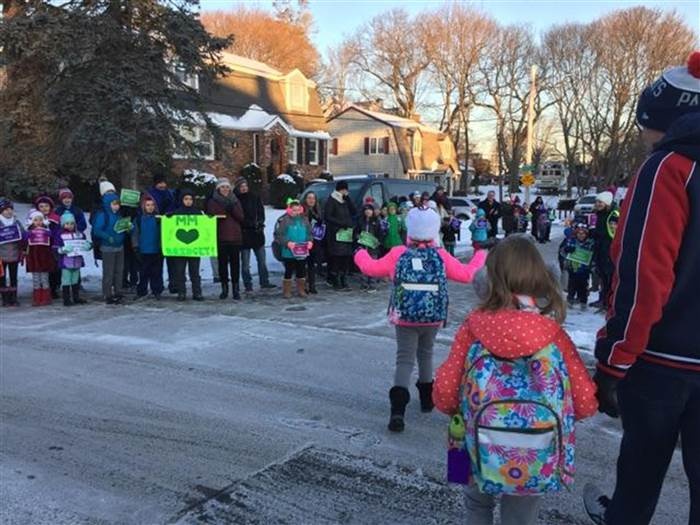
Police officers from the town, county, and state stood at attention to honor her return.
“It was overwhelming,” said her mother, Megan Kelley. “She felt so special—so loved—after everything she’s been through. Seeing all those faces cheering her on meant the world to us.”
Some parents couldn’t hold back tears. Others said the moment reminded them how powerful community could be.
One mother, Kristin Healy, whose son is in Bridget’s class, helped organize the welcome. “We wanted Bridget to know she wasn’t forgotten,” she said. “Even after fifteen months, she’s still part of us.”
Healy created a Facebook event, inviting fifty people to gather outside the school. By the end of the day, more than 150 had joined—including local police officers who showed up in uniform to line the entrance.
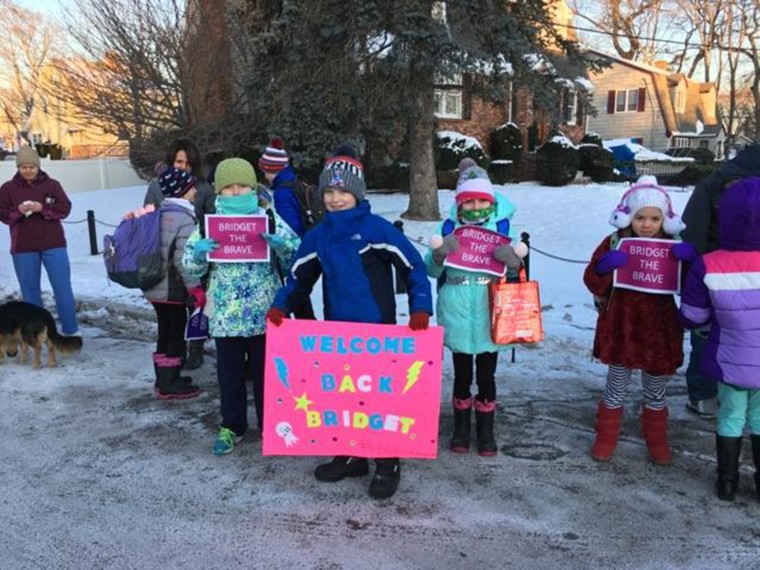
At first, some worried the attention might make Bridget shy. But instead, she raised her arm high and flashed a victory sign, her grin stretching from ear to ear. The crowd roared with pride.
In that single gesture—small hand lifted against the cold winter air—Bridget seemed to declare victory not just over illness, but over fear, loneliness, and the long months of struggle.
Her journey isn’t over. The road to full recovery after a transplant is long and delicate. But as she walked into Merrymount Elementary that morning, surrounded by cheers and tears, it was clear: Bridget had already won something far greater than her battle with cancer.
She had won back her childhood.
And for everyone who stood shivering in the 4°C air that morning—parents, friends, teachers, police officers—it was more than a welcome. It was a celebration of courage, hope, and the kind of strength that can come from the smallest, bravest hearts.
